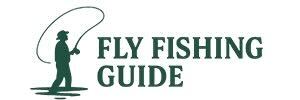Casting the Limay: A Bariloche Fly-Fishing Day You’ll Remember
Where clear water, wild trout, and Patagonian wind write your best cast
At first light, the Limay looks like a length of liquid glass unspooled from Nahuel Huapi Lake, stretching east into the Patagonian steppe. A breeze pads along the banks and nudges the reeds. A condor rides a stacked column of air and watches your line arc, then settle with the softest kiss. The river turns its shoulder toward you—cool, steady, confident—and dares you to make the next cast count.
Trail Wisdom
Mind the Wind Window
Plan key dry-fly sessions for the morning and evening when winds typically ease; midday is streamer or nymph time.
Polarized Protection
Bring quality polarized sunglasses to spot fish and cut glare—essential for reading seams and protecting your eyes from errant hooks.
Wade With Intent
The Limay’s push is steady; take short, deliberate steps on slick, rounded cobbles and never wade deeper than you can brace comfortably.
Barbless and Wet Hands
Use barbless hooks and keep fish in the water during release for a healthier fishery and better photos.
Local Knowledge
Hidden Gems
- •Villa Llanquín’s hand-pulled cable ferry—worth a detour on the drive to quieter runs
- •Early-morning casts at the Boca del Limay near Dina Huapi for sight-fishing in glassy water
Wildlife
Andean condor, Patagonian red fox
Conservation Note
Clean and dry wading gear to prevent didymo and other invasives; keep fish wet, minimize handling, and pack out all trash along the river corridor.
Nahuel Huapi became Argentina’s first national park in 1934, protecting Andean forests and lakes where non-native trout introduced in the early 1900s created today’s renowned fishery.
Seasonal Guide
spring
Best for: Active hatches, Learning new techniques
Challenges: Cold mornings, Variable flows
September–November brings rising water and building insect activity; expect cool starts and rewarding mid-day windows.
summer
Best for: Dry-fly sight fishing, Long days on the water
Challenges: Afternoon winds, Stronger sun
December–February is prime time with clear water and long light; plan early or late sessions to beat the wind and heat.
fall
Best for: Large brown trout, Stable weather
Challenges: Shorter daylight, Cooler evenings
March–May offers crisp air, golden banks, and pre-winter aggression from browns—an ideal window for patient anglers.
winter
Best for: Quiet banks, Select tailwater/lake options
Challenges: Seasonal closures, Cold temps
June–August brings limited access on many rivers; check regulations and expect chilly days if fishing permitted sections or nearby lakes.
Photographer's Notes
What to Bring
Polarized SunglassesEssential
Crucial for spotting fish, reading water, and protecting your eyes from UV and hooks.
Layered Clothing (Synthetic/Wool)Essential
Patagonian weather shifts fast; moisture-wicking base layers and a windproof shell keep you comfortable.
Wading Boots or Wet-Wading ShoesEssential
Grippy soles help on slick cobbles; in summer, neoprene socks and wet-wading shoes can be sufficient.
Sun Protection (Hat, Buff, Sunscreen SPF 50+)Essential
High-altitude sun and reflection off water demand serious protection all day.
Common Questions
Do I need a fishing license?
Yes. A valid Patagonia sport fishing license is required and can be purchased in Bariloche or online; your guide can advise on current regulations.
Is gear included?
High-quality rods, reels, lines, flies, and wading gear are provided. You’re welcome to bring your own if you prefer.
Do I need prior fly-fishing experience?
No. Trips are tailored to all levels, and guides provide hands-on instruction for beginners and targeted coaching for experienced anglers.
What about weather and wind?
Patagonia is famously variable. Expect sun, wind, and quick changes—layers and a windproof shell are key. Guides adjust tactics to conditions.
Is the trip catch-and-release?
Yes. These trips practice catch-and-release with barbless hooks to protect the fishery.
What’s included in the day?
Private transfers from your Bariloche accommodation, gourmet riverside meals, top-quality gear, and professional English-speaking guides are included.
What to Pack
Polarized sunglasses for sighting fish and eye protection; Windproof/rain shell for Patagonia’s fast-changing conditions; Quick-dry layers to stay warm after wading; Pesos or card for licenses and post-river food in town.
Did You Know
Nahuel Huapi National Park, established in 1934, is Argentina’s first national park and spans more than 7,000 square kilometers of Andean lakes, forests, and steppe.
Quick Travel Tips
Buy your fishing license in Bariloche a day prior to your trip; Mornings typically offer calmer winds—plan early starts; Cell service can be spotty along the river—download maps and confirm pickup points; Many guides provide gear—bring personal layers and sun protection.
Local Flavor
After the river, order a bife de chorizo at El Boliche de Alberto or grab a pint with lake views at Cervecería Patagonia. Chocolate lovers should swing by Rapa Nui downtown, and Manush pub on Avenida Bustillo pairs local IPAs with hearty milanesas. For a scenic cooldown, cruise the Circuito Chico and watch the last light slide across Moreno Lake.
Logistics Snapshot
Closest airport: BRC (San Carlos de Bariloche) with daily flights from Buenos Aires. Typical put-ins are 20–60 minutes from town depending on the section fished. Cell service is intermittent along the Limay—coordinate meeting points with your guide. A Patagonia sport fishing license is required; barbless hooks and catch-and-release ethics apply.
Sustainability Note
Rinse and fully dry wading gear between waters to prevent didymo spread; keep fish in the water and limit handling. Pack out all waste and respect private property along the river corridor.
Continue Reading

Reeling in the Coast Range: A Half-Day Fishing Escape from Whistler Village
Short drives from Whistler Village put you on fast, productive water: this three-hour guided fishing trip is an accessible, efficient way to learn local techniques and chase rainbow and cutthroat trout in the Sea-to-Sky corridor.
Whistler, British Columbia

Streamside Lessons: A Half-Day Walk & Wade Trout Trip in Cherokee
Learn to read pocket water, cast with purpose, and feel the pull of wild trout on a private, four-hour guided outing in western North Carolina. This half-day walk-and-wade trip is ideal for beginners and seasoned anglers who want concentrated time on some of the region’s best small rivers.
Cherokee, North Carolina

